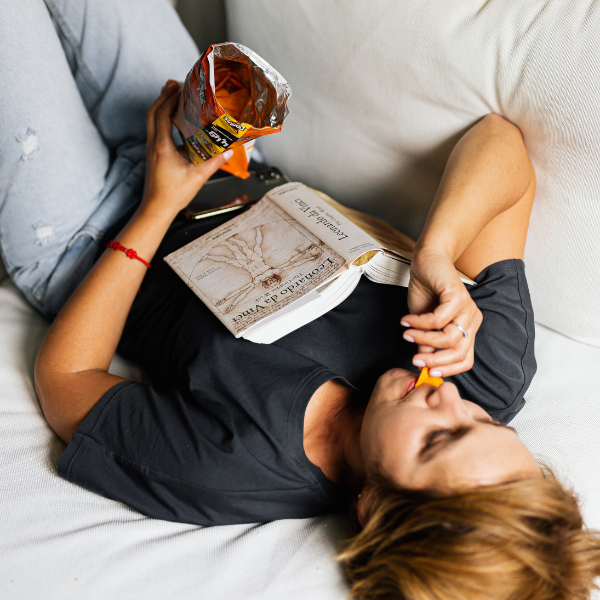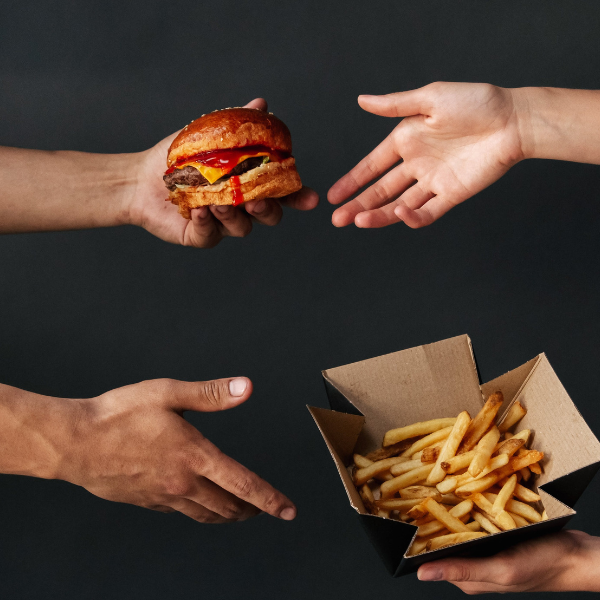Have you ever experienced tossing and turning in bed, struggling to fall asleep? Many people suffer from poor sleep quality, and what you eat before bedtime could be a significant factor.
A good night’s sleep is essential for our physical and mental well-being, and avoiding certain foods can make a remarkable difference in how we feel when we wake up.
So, let’s explore the top 10 worst foods to eat before bedtime and discover some healthier alternatives to promote restful sleep.

Understanding the importance of a good night’s sleep
Before we delve into the top 10 worst foods to eat before bedtime, let’s take a moment to appreciate the significance of a good night’s rest. Sleep is not merely a time of rest but a period of healing, restoration, and preparation for the next day.
While we sleep, our bodies repair tissues, strengthen the immune system and consolidate memories.
On the other hand, lack of sleep or poor sleep quality can lead to various health issues, such as fatigue, irritability, reduced cognitive function, weakened immunity, and an increased risk of chronic conditions like obesity, diabetes, and heart disease.
The impact of food on sleep quality
Our diet plays a crucial role in shaping our sleep patterns. Certain foods have sleep-enhancing properties, while others can disrupt our sleep cycle and lead to restlessness during the night.
Understanding the impact of food on our sleep quality empowers us to make healthier choices and improve our well-being.
How food affects sleep
The relationship between food and sleep is intricate. Some foods can stimulate the production of sleep-regulating neurotransmitters, while others can cause discomfort, heartburn, or interfere with our natural sleep-wake cycle.
The role of nutrients in sleep regulation
Various nutrients contribute to sleep regulation. For example, tryptophan, an amino acid found in certain foods, promotes the production of serotonin—a neurotransmitter that induces feelings of relaxation and sleepiness.
Including foods rich in tryptophan, such as turkey, chicken, bananas, and milk, into our dinner or evening snacks can be beneficial for better sleep.
Foods that can help improve sleep quality
Before we delve into the foods to avoid, let’s discuss some sleep-friendly options that can aid in promoting restful sleep. Incorporating cherries, oats, almonds, and herbal teas into our evening routine can create a calming, sleep-inducing environment.

Top 10 worst foods to eat before bedtime
High-fat foods
Eating high-fat foods before bedtime can lead to indigestion and discomfort, making falling and staying asleep challenging. Greasy and heavy meals should be avoided, especially close to bedtime.
Spicy foods
Spicy foods, while delightful for some, can cause heartburn and gastrointestinal discomfort, disrupting sleep. It’s best to save spicy dishes for earlier in the day.
Caffeine and energy drinks
Caffeine is a stimulant that can stay in our system for several hours. Consuming caffeinated beverages like coffee, tea, or energy drinks close to bedtime can make falling asleep difficult and reduce sleep quality.
Sugary foods and desserts
Indulging in sugary foods and desserts before bedtime can cause a sudden spike in blood sugar levels, leading to restlessness and frequent awakenings during the night.
Alcohol
While alcohol might make us feel drowsy initially, it can disrupt our sleep cycle, leading to fragmented and poor-quality sleep. It’s better to avoid alcoholic drinks near bedtime.

Red meat
Red meat is rich in protein and can take longer to digest. Eating it before bedtime may cause discomfort and disrupt sleep, as our bodies focus on digestion instead of rest.
Processed and fast foods
Processed and fast foods are often high in salt, unhealthy fats, and additives that can lead to bloating and discomfort when consumed before bedtime. Opt for healthier alternatives instead.
Carbonated drinks
Carbonated drinks can cause gas and bloating, making us feel uncomfortable and restless when trying to sleep.
High-protein foods
High-protein foods, especially when combined with high-fat content, can be hard to digest and may lead to discomfort, affecting our ability to fall asleep peacefully.
Foods high in tyramine
Foods containing tyramine, such as aged cheeses and certain cured meats, can trigger the release of norepinephrine—a brain stimulant that interferes with sleep.

How late-night eating affects digestion and metabolism?
Our bodies follow a natural circadian rhythm, influencing various physiological processes, including digestion and metabolism. Late-night eating can disrupt this rhythm and affect our ability to digest food efficiently.
The body is designed to process food during the day when our activity levels are higher and our metabolism is more active. Consuming heavy meals before bedtime gives our bodies less time to digest the food properly, potentially leading to weight gain over time.
Healthy bedtime snack options
Instead of reaching for unhealthy snacks, consider these healthier alternatives before bedtime:
- A small bowl of whole-grain cereal with milk: This combination balances carbohydrates and tryptophan, promoting relaxation.
- A banana: Rich in potassium and magnesium, bananas can help relax muscles and promote sleep.
- A handful of almonds: Almonds are a good source of magnesium, which can aid in calming the nervous system.
- Herbal tea, such as chamomile: Chamomile has soothing properties and can help induce a sense of calmness before bedtime.
Takeaway
Making mindful choices about our food intake before bedtime can significantly impact our sleep quality and well-being. Avoid these top 10 worst foods to eat before bedtime, and opt for healthier alternatives can pave the way for a more restful and rejuvenating night’s sleep.
Remember, sleep is not just a luxury but a necessity for a healthy and fulfilling life.
FAQs
Is it okay to have a light snack before bedtime?
Yes, having a light and healthy snack is fine, but choosing foods that promote relaxation and do not cause discomfort is essential.
Can I drink herbal tea before sleep?
Absolutely! Herbal teas like chamomile have calming properties and can be an excellent choice before bedtime.
How long before bedtime should I avoid caffeine?
It’s best to avoid caffeine at least 4-6 hours before going to bed to allow its effects to wear off.
Does warm milk really help with sleep?
Warm milk contains tryptophan, which can have a calming effect and aid in relaxation, making it a popular bedtime beverage.
Can late-night eating lead to weight gain?
Yes, eating late at night can disrupt digestion and metabolism, potentially leading to weight gain over time.


